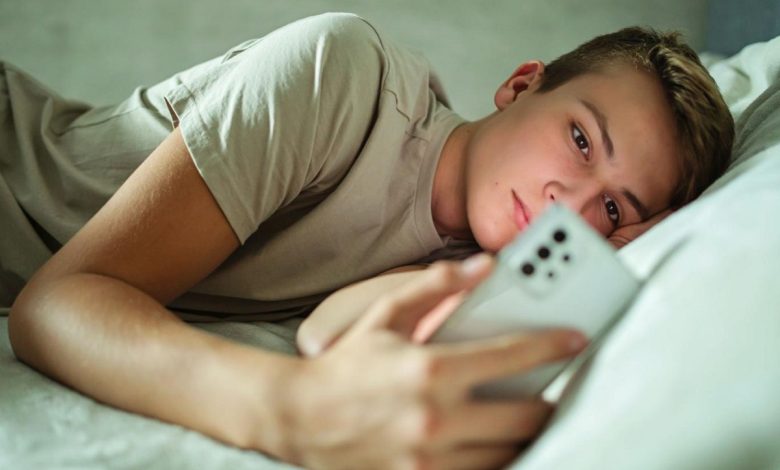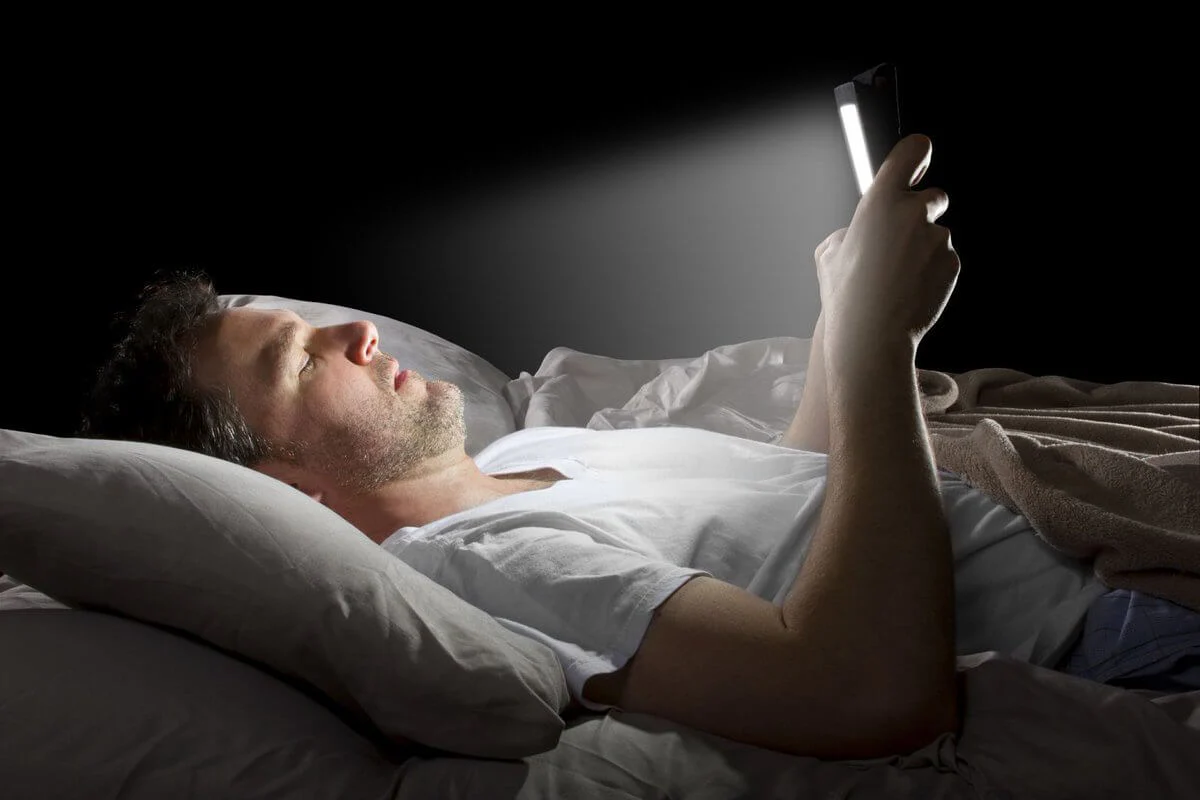Mobile Phone Use In Bed: If You Want To Sleep Well, Don’t Take Your Phone To Bed

Mobile Phone Use In Bed: Traditionally, it is recommended to stop using mobile phones one or two hours before going to bed, but according to new research, the use of screens in bed is the main factor negatively affecting sleep, not just using them in the hours leading up to sleep.
Research conducted at the University of Otago, examining the effects of screen use (such as phones, tablets, or televisions) on the sleep quality of young people, challenges the common perception that using screens late at night is generally harmful to sleep. It shows that using screens in bed is the primary cause of its negative impact on sleep, rather than merely using them in the hours before bedtime.
Mobile Phone Use In Bed, While it is traditionally advised to avoid screens one to two hours before sleep, this research reveals that the real issue arises when individuals use screens in bed. This behavior causes them to fall asleep later, thereby reducing the quality of their sleep.
Dr. Bradley Braznan, the lead author of this study, emphasizes that since screen use has become a part of daily life for teenagers, current sleep guidelines should be revised to better align with modern living realities. He suggests that instead of focusing solely on avoiding screens before bed, more attention should be paid to the timing and method of screen use in bed.
Mobile Phone Use In Bed, In this study, published in JAMA Pediatrics, 85 adolescents aged 11 to 14 were observed for a week, wearing a body-mounted camera three hours before bed until bedtime. These cameras recorded the time, type, and method of screen use by the adolescents. An infrared camera was also installed in their bedrooms to record screen usage in bed. In addition, they wore a device called an actigraph, which measures sleep. This small device is about the size of a wristwatch.
Mobile Phone Use In Bed

Dr. Braznan said: “It quickly became clear that a large portion of the time spent on screens was in bed.”
Mobile Phone Use In Bed, Researchers found that 99% of participants used screens within two hours of going to bed, more than half of them used screens in bed, and one-third of them returned to their devices after their first attempt to sleep at night.
According to Dr. Braznan, “The most interesting finding was that the time spent using screens before going to bed had little impact on nighttime sleep, but using screens in bed disrupted sleep. On average, it delayed sleep by about half an hour and reduced the total amount of sleep that night. This was especially true for more interactive screen activities like playing video games or multitasking, such as watching a movie on a laptop while playing Xbox. Every additional 10 minutes of this type of screen time reduced sleep by about the same amount.”
Mobile Phone Use In Bed, The study’s findings indicate that the effect of screen time on sleep is mainly due to delays in falling asleep caused by the time spent on the devices, rather than the direct effects of blue light or interactive engagement.
Dr. Braznan suggests a simple sleep guide could be to keep devices out of the bedroom and allow teens to use their devices before sleep, but not to take them to bed.
Also Read:
Sleeping With Contact Lenses In: What Happens When You Sleep Without Removing Contact Lenses?
Sleeping More on Weekends Reduces Heart Disease Risk
Why Do I Keep Falling Asleep After Alarm?
Sleeping With The Light On Can Have Various Negative Effectives On Our Health!




